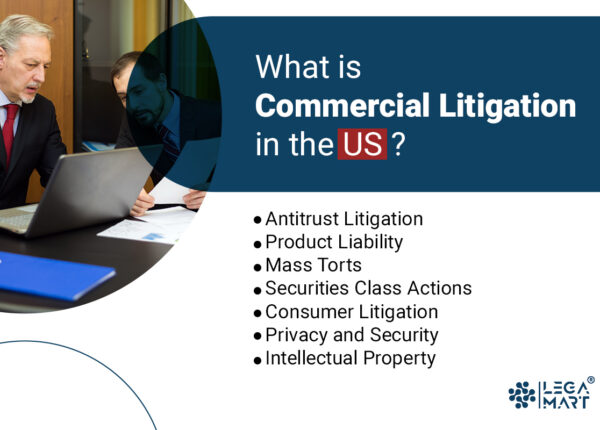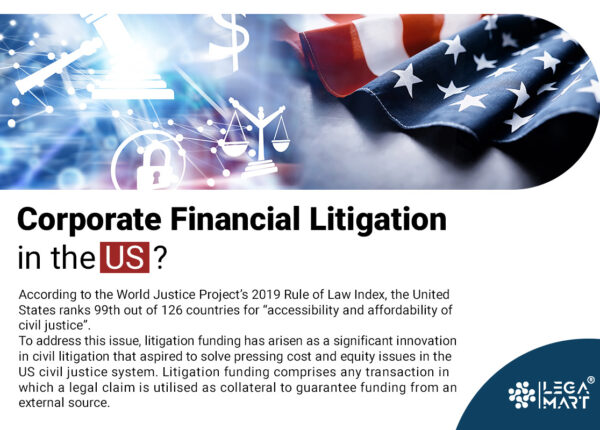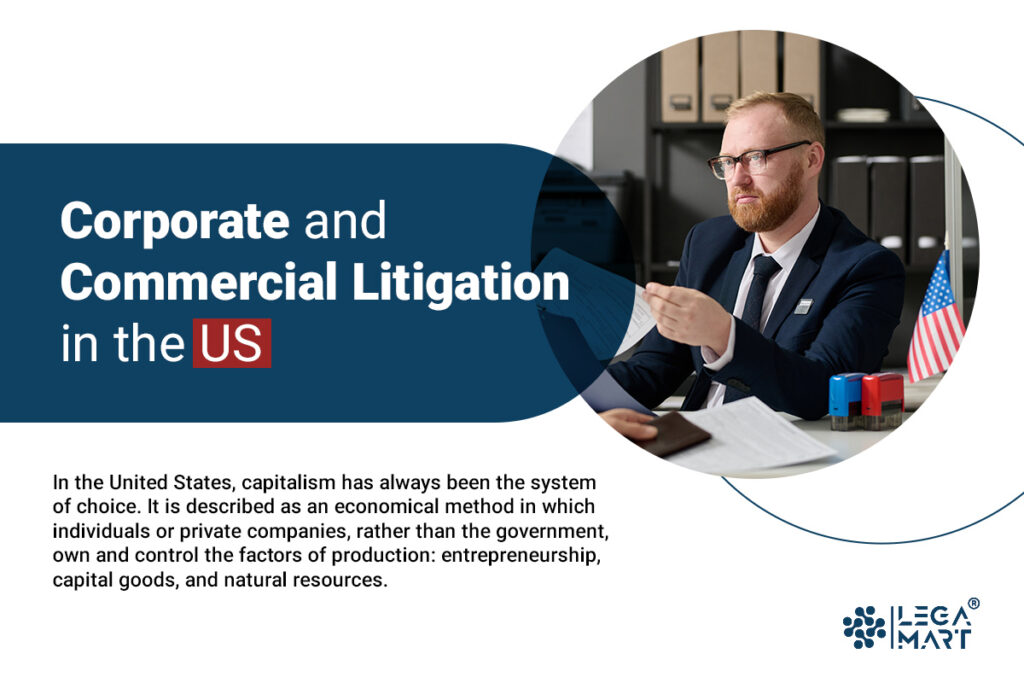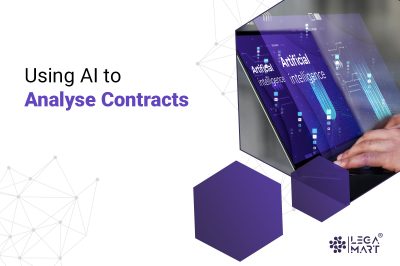Introduction
In the United States, capitalism has always been the system of choice. It is described as an economical method in which individuals or private companies, rather than the government, own and control the factors of production: entrepreneurship, capital goods, and natural resources.
In such a situation, companies are often confronted with complex disputes with other firms, government agencies, or groups of individuals that require an understanding of both the business problem and the customer’s industry-leading a need for better commercial litigation in the US.
A Brief Explanation of Corporate and Commercial Litigation in the US
Corporate litigation, often called commercial litigation, refers to civil proceedings relating to matters of commerce like shareholding issues, contract breaches, joint venture agreements disputes, insurance coverage disputes etc. Commercial litigation attorneys in the US can usually cover commercial claims as well, but it is best to review them beforehand. When an individual sues a company, the differences between the two types of litigation generally do not affect the plaintiff. However, the company being sued must have representation based on the nature of the alleged infringement.
What is Commercial Litigation in the US?

There are diverse types when it comes to commercial litigation in the US, such as:
Antitrust Litigation
Federal Trade Commission defines antitrust litigation as a concept that intends to protect the competitive process for the benefit of consumers by ensuring that it is strong to work efficiently, keep prices low, and keep the quality of civil rights affairs high.
According to the US Equal Employment Opportunity Commission (EEOC), civil rights disputes enforce every citizen’s constitutional right to vote, protect against discrimination in public places, protect constitutional rights, guarantee that people have entry to public establishments and public teaching, and discourage discrimination.
Product Liability
Product liability laws are designed to protect consumers from defective, faulty, or faulty products or sellers under strict liability laws.
Mass Torts
In a mass torts trial, multiple plaintiffs seek damages from a single defendant. In mass tort litigation, all plaintiffs have similar complaints, and a large number of plaintiffs would make individual actions impracticable.
Securities Class Actions
Similar to class tort actions, securities class actions focus on multiple plaintiffs, single defendants, and securities fraud claims.
Consumer Litigation
Consumer litigation protects consumers from fraud, misleading advertising, defective products or services, and breach of contract. It also oversees fair practices concerning repayments, business deals, guarantees, and service contracts.
Privacy and Security
Privacy and security laws protect consumers’ rights to access their records and information. These laws entitle consumers to fully disclose their information, including why it was collected, where it is stored, and when it is shared.
Intellectual Property
Intellectual property laws are designed to protect patents, trademarks, copyrights, trade secrets, copyright enforcement, and other confidential business information. Intellectual property laws can protect your business and help protect your customers’ confidential data and information.
Defend your Business Rights in the US
A business attorney can operate as your organisation’s business representative. A business litigator assists businesses and corporations in resolving their legal disputes related to commercial litigation in the US, including but not limited to any form of commercial dispute. A business attorney can also help your corporation navigate the legal system and resolve claims that include:
- Contracts
- Fraud
- Intellectual property
- Fair practices
- Debt collection
- Partnership formations
- Dissolving partnerships
- Employment issues
- Product liability claims
A commercial lawyer can also assist a corporate entity with commercial litigation in the US in diverse ways. Whether your company needs to file patents, protect your intellectual property, file product liability claims, or resolve employment law issues related to remote or in-office employment positively, a corporate attorney can help you. The next step is to review your current business litigation with a regional law firm. Consider choosing a legal team specialising in the type of litigation your business demands.
When your business requires legal representation, you want a law firm dealing in commercial litigation in the US that you can trust when the need arises. If your business or commercial enterprise needs continuing legal protection, you can opt for Retainership, which will give continuous support for all issues related to commercial litigation in the US.
Corporate Financial Litigation in the US

According to the World Justice Project’s 2019 Rule of Law Index, the United States ranks 99th out of 126 countries for “accessibility and affordability of civil justice”. To address this issue, litigation funding has arisen as a significant innovation in civil litigation that aspired to solve pressing cost and equity issues in the US civil justice system. Litigation funding comprises any transaction in which a legal claim is utilised as collateral to guarantee funding from an external source.
The funding party delivers capital to the plaintiff in exchange for a share of the result of the case. Funding is generally non-recourse, i.e. the funder will only acquire a reimbursement if the case is successfully settled or results in a collective judgment. But in a situation where the case results are unsuccessful, the applicant is not obliged to compensate the funder.
The term “litigation finance companies” generally guides companies whose capital has been committed by investors to invest primarily or exclusively in litigation. But “litigation funding” or “litigation funders” also refers to hedge funds or private investors making one-off investments, brokers identifying investment cases and then raising capital on behalf of a corporation or law firm. Further, trading crowdfunding platforms soliciting public donations for individual cases or companies that offer consumer financing to individual applicants based on the expected value of their case. Litigation funding exists in both commercial and consumer contexts.
Commercial lenders often fund complex, high-value commercial litigation in the US. The most typical disputes are antitrust, foreclosure, bankruptcy, breach of contract, breach of fiduciary duty, copyright or trademark rights, patents, and misappropriation of trade secrets. Commercial financing agreements generally implicate experienced business entities or their professional attorneys. The lender’s investment is often in a surplus of $1 million for cases estimated to cost $10 million or more.
Consumer financing is primarily intended for individuals or “consumers” who wish to advance or receive an advance payment for personal injury, medical malpractice, class action, and class tort claims. Beneficiaries typically receive funding in the form of advances to cover expenses and living/medical expenses while their claim is pending. Consumer finance investments tend to be lower, but the goal is the same: to provide valid claim holders with non-recourse financing that allows access to justice. Litigation funding originally arose to help smaller, more vulnerable plaintiffs bring meritorious claims against larger, better-funded opponents.
In this “David vs Goliath” context, litigation funding helps “level the playing field” and provide “access to justice” so that cases are more likely to be decided on merits rather than which party has a deeper pocket. However, as awareness of finance has expanded, it is increasingly viewed as a corporate finance tool that allows companies of all sizes to value litigation claims as assets. Up-to-pay litigation for commercial litigation in the US can now be used to grow a business while litigation is ongoing.
There are also potential accounting benefits for businesses of all sizes. For example, companies can use litigation funding to cover those expenses off their balance sheets instead of paying litigation costs and accounting for those expenses as expenses.
Best Commercial lawyers in the US
If your organisation requires commercial litigation in the US, contemplate working with a regional law firm. They can be selected based on their experience and expertise in the field. Such law firms have a deep understanding of local laws and rules that are applicable to your situation. Responsive legal advice to keep you informed of the progress of your case is a must. They should assure 100% commitment to your claim to see it through to completion.
The best law firms in the business know that protecting your company is a foremost priority. If you choose to work with a legal team, they can help you understand what type of business process your case is and provide the necessary legal protections to prepare your business for current and future legal questions and disputes.
You can also consider working with the legal professionals at Legamart Directory. They will provide expert advice and can guide you through the processes involved in contractual matters, product disputes, and many other forms of business and commercial law.
Conclusion
The key takeaway from this article is that while the corporate litigation environment has been extensively studied in both the financial and legal literature, it has only been pursued through the lens of the US legal system for factors that suggest that the patterns and practices observed in the US do not apply worldwide. Corporate litigation in the US involves much more than one company suing another. Corporate litigation includes every type of judicial proceeding having anything to do with a company or business, which may involve litigation avoidance and the conducting and resolution of commercial disputes. In general, corporate disputes involve a variety of contractual and tort issues.




